The Harm Reduction Research Initiative (HRRI) at the University of Central Florida is an interdisciplinary team of faculty members, postdoctoral scholars, and students with research expertise in drug use, harm reduction, substance use disorder health services and policies (e.g., medications for opioid use disorder, decriminalization, drug courts), mental health services, and multiple research methods (qualitative, quantitative, and mixed).
HRRI is led by Dr. Shana Harris and Dr. Barbara “Basia” Andraka-Christou. To contact HRRI, please send an email to shana.harris@ucf.edu and/or barbara.andraka@ucf.edu.
Fatema Z. Ahmed, Ph.D.
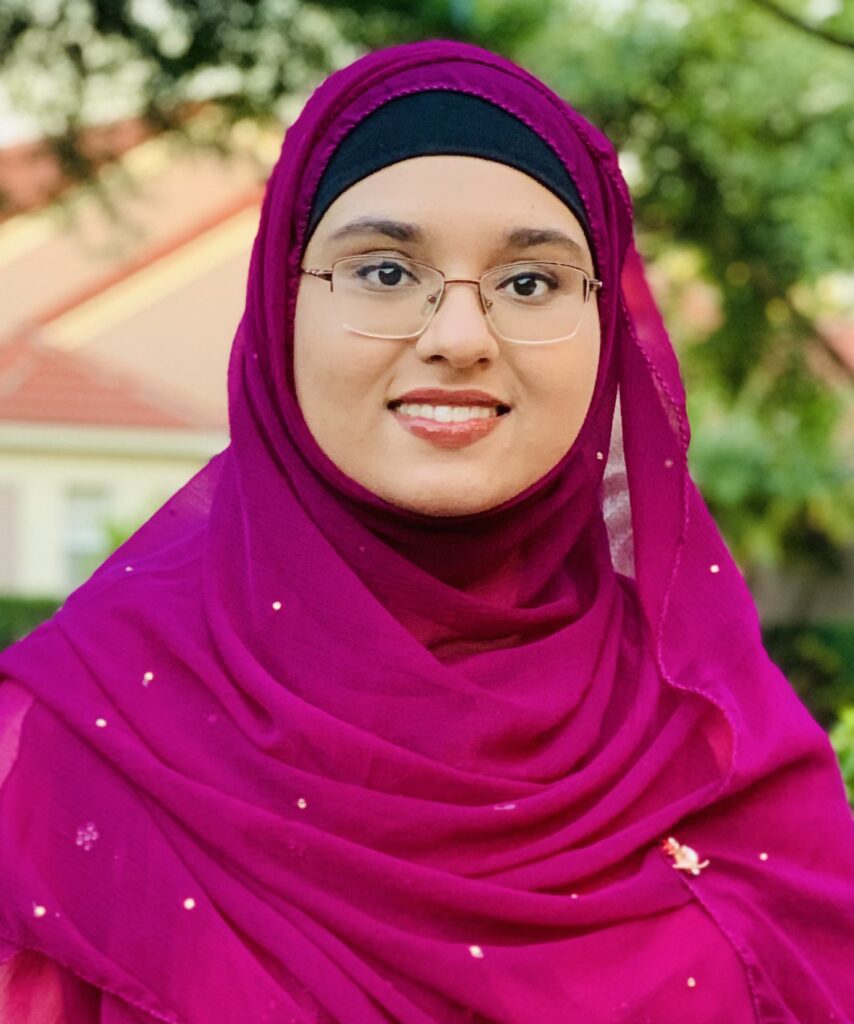
Dr. Fatema Z. Ahmed is a Postdoctoral Scholar in the School of Global Health Informatics & Management at the University of Central Florida. She earned her Ph.D. in Public Affairs, specializing in global and community health services research, from the University of Central Florida. Her research interests include health policy and health services research, with a particular focus on substance use disorder (SUD) in vulnerable populations. Her research examining the effects of state Medicaid policy on the planned utilization of medications for opioid use disorder (MOUD) among individuals referred to specialty SUD treatment facilities by the criminal justice system was funded by the National Institute of Drug Abuse.
In addition to HRRI, she is actively engaged in other research projects with the UCF Substance Use Policy Evaluation and Research (S.U.P.E.R) Workgroup, examining beliefs, norms, barriers, and policies about MOUD in problem-solving courts.
Barbara “Basia” Andraka-Christou, Ph.D., J.D.
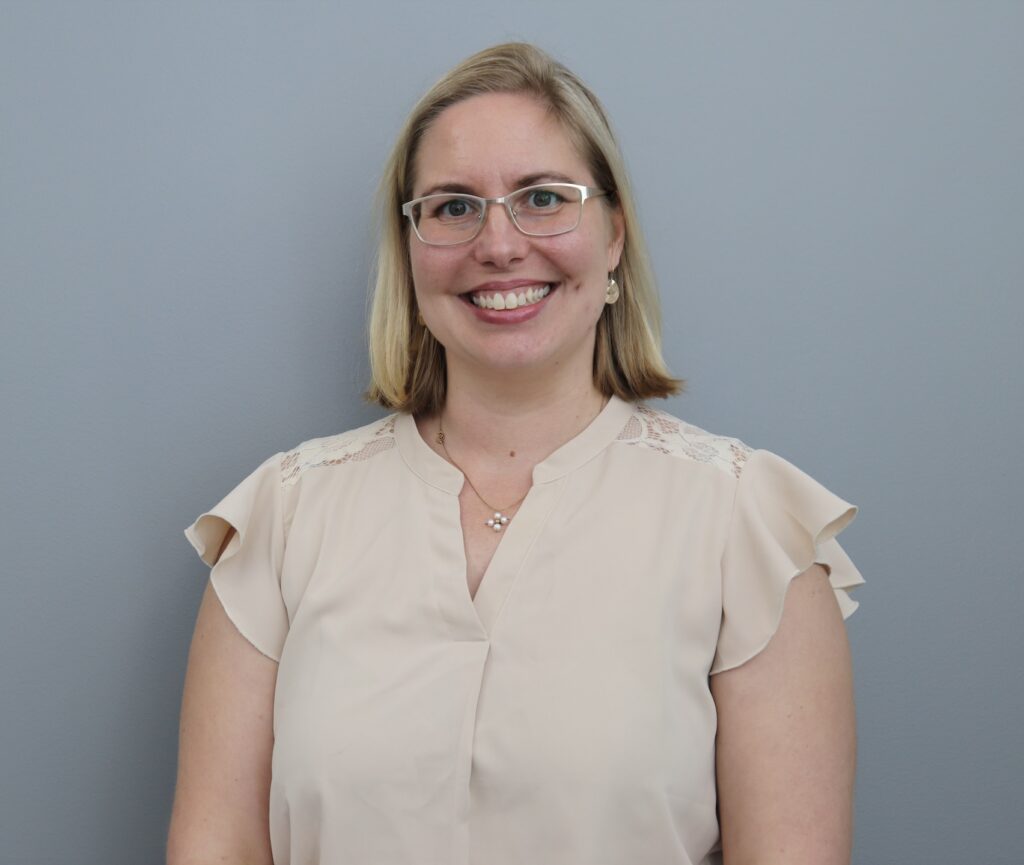
Dr. Barbara “Basia” Andraka-Christou is an Associate Professor in the School of Global Health Management and Informatics, with a Secondary Joint Appointment in the Department of Internal Medicine, at the University of Central Florida. She is also a licensed attorney in Florida. Her research explores substance use disorder treatment from health services and health policy perspectives. Much of her work focuses on improving access to medications for opioid use disorder, including in problem-solving courts. Dr. Andraka-Christou has authored over 45 peer reviewed articles. She is the author of The Opioid Fix: America’s Addiction Crisis and the Solution They Don’t Want You to Have (Johns Hopkins University Press, 2020). Dr. Andraka-Christou received her J.D. and Ph.D. from Indiana University, where she also completed a postdoctoral fellowship.
In addition to HRRI, she is part of the UCF Court Health Services and Policy Workgroup and the UCF Substance Use Policy Evaluation and Research (S.U.P.E.R.) Workgroup.
M.H. Clark, Ph.D.

Dr. M. H. Clark is an Associate Lecturer in the Department of Learning Sciences and Educational Research at the University of Central Florida. She has a Ph.D. in Experimental Psychology with a specialization in Research Design and Statistics from the University of Memphis. She is an expert in causal inference, selection bias in non-randomized experiments, and propensity score methods. She has worked as a statistical and research consultant in behavioral research and program evaluation since 2000. She teaches graduate courses in statistics and research methods and works as a coordinator for the Computing and Statistical Technology Laboratory in Education (CASTLE), which provides statistical instruction and research consultation to faculty and students.
In addition to HRRI, she is part of the UCF Court Health Services and Policy Workgroup and the UCF Substance Use Policy Evaluation and Research (S.U.P.E.R.) Workgroup. She is a member of the American Evaluation Association and frequently presents statistical papers and workshops on propensity scores at their annual conventions. Some of her studies have been published in the Journal of the American Statistical Association, Evaluation Review, and Learning and Individual Differences.
Shana Harris, Ph.D.
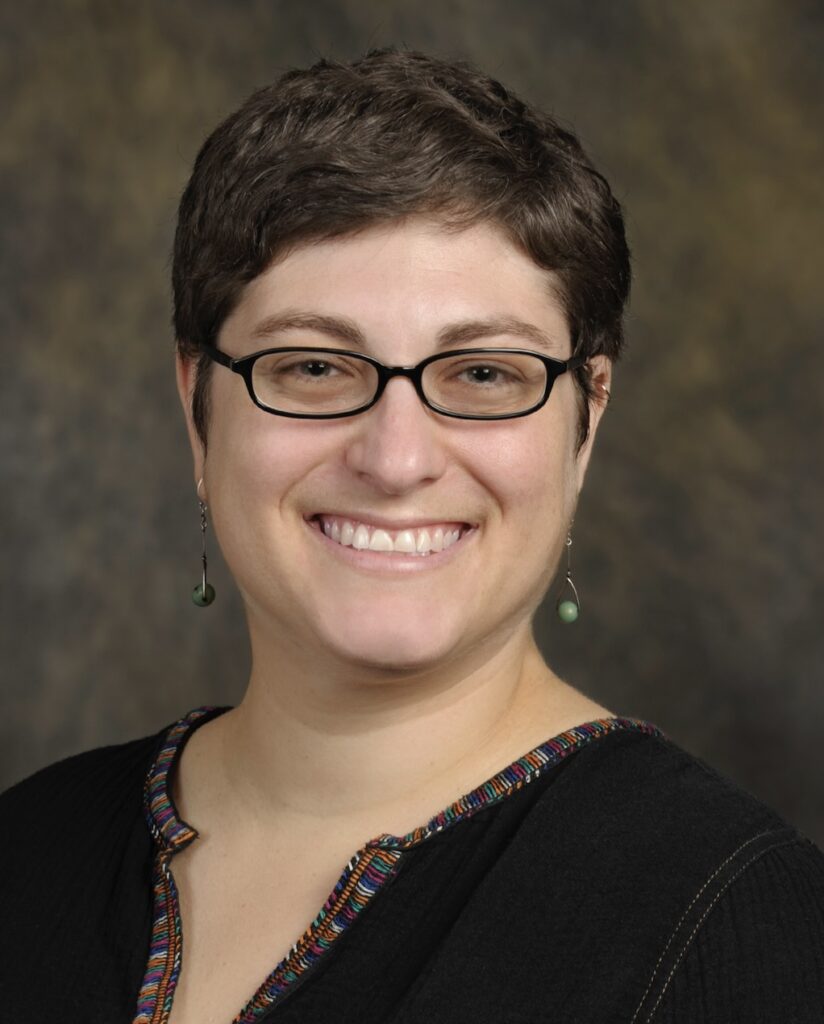
Dr. Shana Harris is an Associate Professor in the Department of Anthropology, with a Secondary Joint Appointment in the Department of Internal Medicine, at the University of Central Florida. She is a cultural and medical anthropologist specializing in drug use, “addiction,” and health politics and interventions, including harm reduction, medication for opioid use disorder, and drug policy reform, in Latin America and the United States.
In addition to her work with HRRI, her current research focuses on psychedelic-based drug treatment in Mexico. Dr. Harris’s research has been supported by several institutions, including the National Institutes of Health and the Wenner-Gren Foundation for Anthropological Research, and has been published in top journals in her field, such as Medical Anthropology Quarterly, Human Organization, International Journal of Drug Policy, and Substance Use & Misuse. Dr. Harris received her Ph.D. in medical anthropology jointly from the University of California, Berkeley and the University of California, San Francisco.
Caridad Hernandez, M.D.
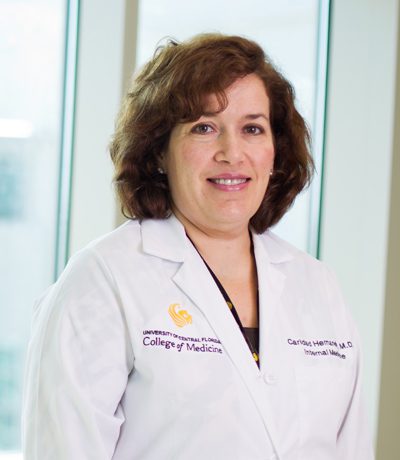
Dr. Caridad Hernandez is a Professor of Medicine and Chair of the Department of Medical Education at the University of Central Florida. She is dedicated to improving healthcare access for underserved and vulnerable communities. In addition to her work with HRRI, Dr. Hernandez established the UCF Chapman Clinic, serving unhoused individuals, and co-directs the UCF College of Medicine Community-Engaged Service-Learning Initiative (CESLI), funded by the Florida Blue Foundation, to enhance health equity. She also leads the UCF Mobile Health Clinic, which aims to improve health outcomes by providing free preventative and primary care services to those facing barriers to care by bringing services to their doorstep. The clinic integrates health education with mobile healthcare delivery and innovative digital tools to foster a healthier, more equitable future.
Dr. Hernandez joined the UCF College of Medicine in 2011 and has held various roles in the M.D. program before becoming the chair of the Department of Medical Education in 2021. She earned her M.D. degree from the University of California, San Francisco, completed her internal medicine residency at Yale-New Haven Hospital, and undertook a Faculty Development Fellowship at the University of North Carolina, Chapel Hill. Additionally, she completed the Executive Leadership in Academic Medicine (ELAM) program at Drexel University. Before joining UCF, she held faculty appointments at the University of Florida College of Medicine and the University of Pittsburgh School of Medicine.
Whitney Margaritis, M.A.
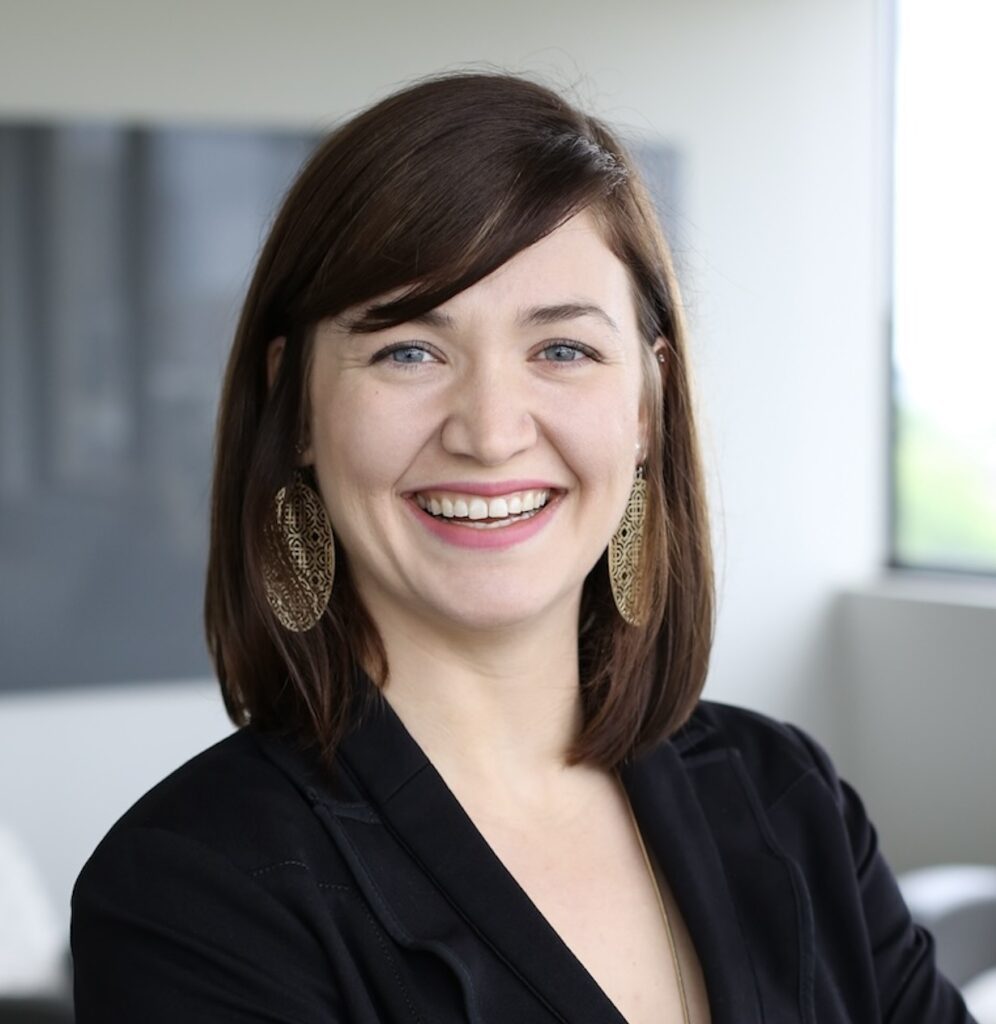
Whitney Margaritis is a doctoral candidate in UCF’s Integrative Anthropological Sciences program. She is a medical and visual anthropologist currently researching cannabinoids as a treatment strategy for chronic illness in the United States. She received a M.A. in anthropology from Wichita State University and a B.S. in forensic science from the University of Central Oklahoma.
In addition to her work in anthropology and with HRRI, Margaritis serves on the Student Advisory Board for UCF’s Student Accessibility Services and is a member of the Society for Medical Anthropology, Society for Visual Anthropology, and FWD-Doc: Documentary Filmmakers With Disabilities.
Suhas Shewale, Ph.D.
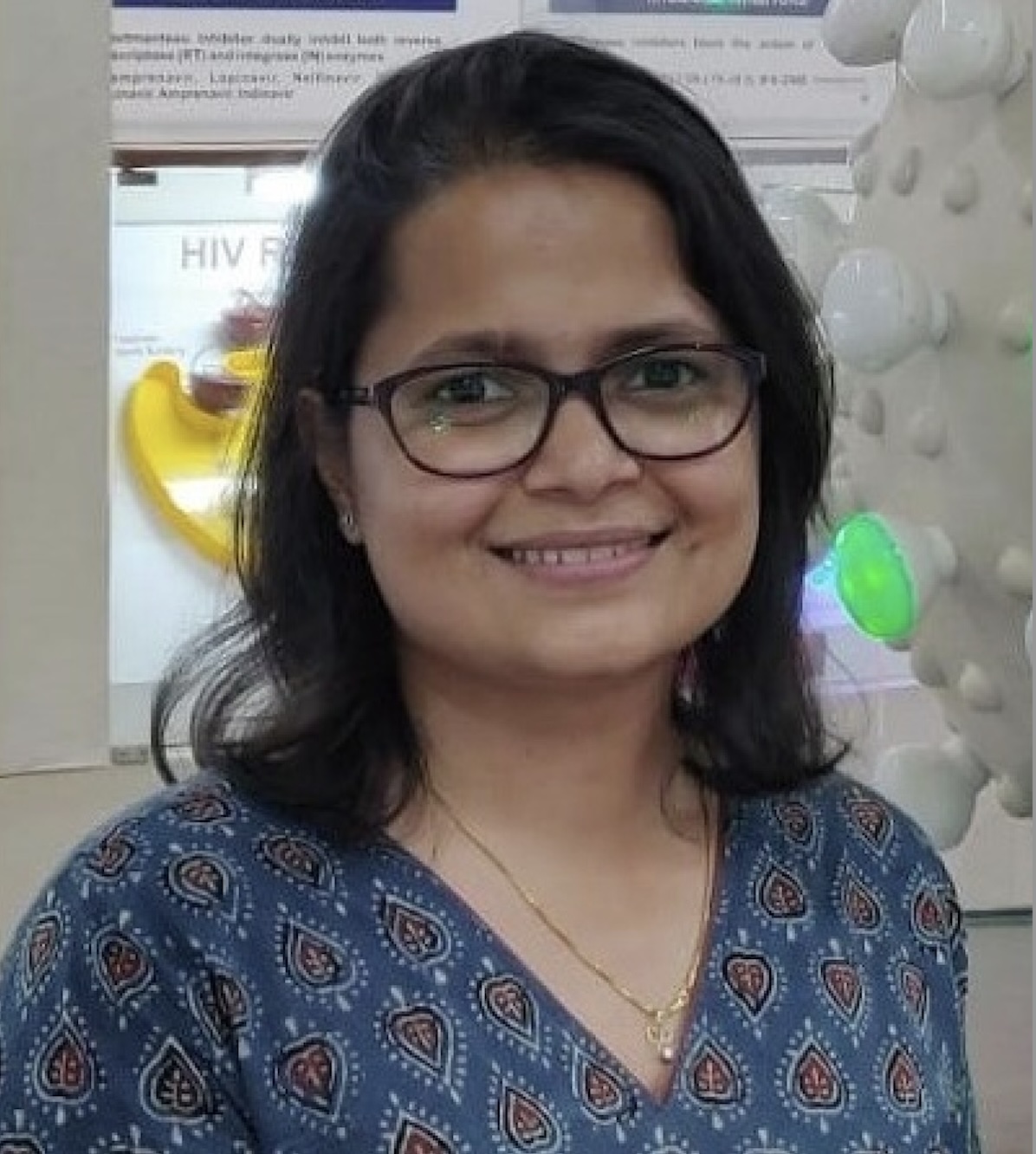
Dr. Suhas Shewale is a Postdoctoral Scholar in the School of Global Health Management and Informatics at the University of Central Florida. She holds a Ph.D. in Health Sciences from Pune University, India. She worked at the Indian Council of Medical Research – National AIDS Research Institute for around 10 years, where she also conducted her doctoral research. Her Ph.D. research focused on exploring reproductive and sexual health needs of commercial sex workers in rural and urban areas in India, and their challenges in accessing reproductive and healthcare services. She was awarded the NIH Fogarty Global Health Fellowship to conduct this research. Her work primarily focused HIV and reproductive and sexual health, employing a mixed methods research and community engagement approach to study the health needs of disadvantaged populations. She has also contributed to the development and implementation of community engagement interventions for HIV, maternal and child health and vector borne diseases in rural India. She has led the preparation of manuscripts, reports, and intervention manuals for community engagement. Dr. Shewale’s research interests include harm reduction, improving access to healthcare and reducing disparities in health outcomes among disadvantaged populations.